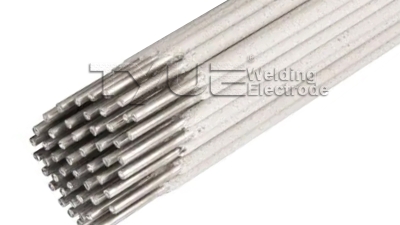The Ultimate Guide to Sourcing High Quality Aluminum Sticks for Global Markets
Table of Contents
- Understanding the Importance of Quality in Aluminum Stick Sourcing
- Identifying Reliable Suppliers for High-Quality Aluminum Sticks
- Key Specifications and Standards for Aluminum Sticks in Global Markets
- Cost Factors and Pricing Strategies for Sourcing Aluminum Sticks
- Logistics and Shipping Considerations for International Aluminum Trade
- Quality Control Measures During the Sourcing Process for Aluminum Sticks
- Elevate Your Welding Skills: Explore AWS/ASME 5.3 E 4047 Aluminum Welding Electrodes for Superior Performance
- FAQS
- Conclusion
- Related Posts
In today's fast-changing manufacturing world, finding top-quality aluminum sticks has become really important for businesses that want to boost productivity and stay competitive worldwide. A recent report from Grand View Research predicts that the global aluminum market could hit around $200 billion by 2025, driven mainly by the growing demand in automotive, aerospace, and construction industries.
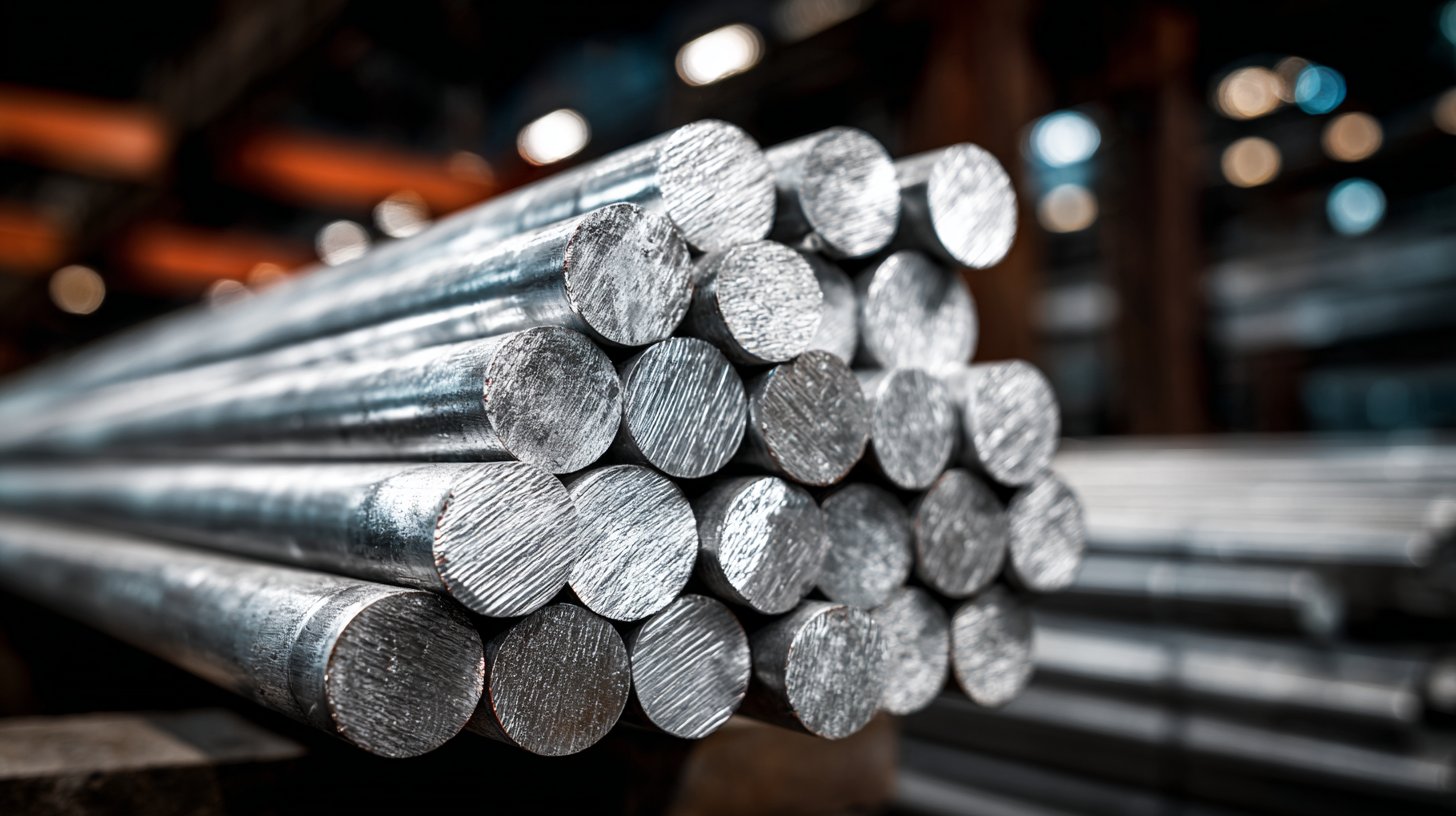
Understanding the Importance of Quality in Aluminum Stick Sourcing
When you're looking to source aluminum sticks for the global market, you quickly realize just how important quality really is. Good quality aluminum isn’t just about ticking boxes for industry standards; it also means products that are reliable and long-lasting—something both manufacturers and consumers really care about. Made from top-notch aluminum, these products are less likely to have defects, rust, or warp, which helps them perform better across a bunch of different uses—whether it’s building something or flying in the sky.
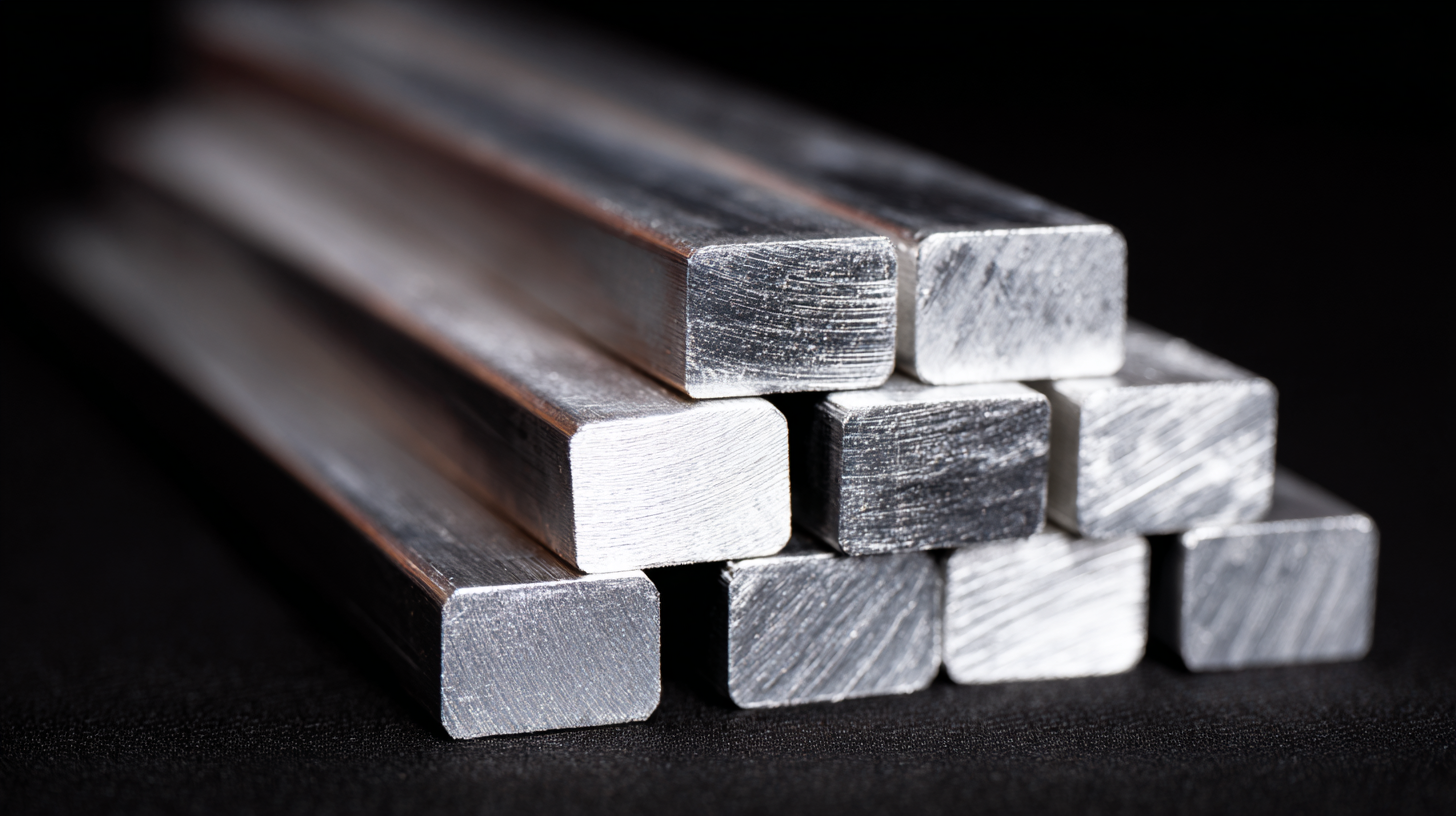
Plus, putting a bit more effort into sourcing quality materials actually pays off in the long run. Sure, they might cost a little more upfront, but the durability and efficiency of high-quality aluminum sticks can cut down on repairs and replacements down the line. And let’s be honest—manufacturers who are known for delivering quality tend to earn more trust from their clients and can even reach wider markets. So, when companies prioritize quality in their sourcing process, they’re not just investing in better products—they’re setting themselves up for steady growth and success in a pretty competitive global scene.
Identifying Reliable Suppliers for High-Quality Aluminum Sticks
When you're on the hunt for top-quality aluminum sticks for the global market, finding reliable suppliers is honestly the key to making sure your products stay consistent and up to standard. The Aluminum Association mentions that worldwide demand for aluminum might hit around 80 million metric tons by 2025 – which just shows how big this market is getting and how important it is to have solid quality checks in place when you're sourcing. To stay ahead, it really pays to do your homework and vet potential suppliers carefully.
Here’s a little tip: always ask for certifications like ISO 9001. It’s a good sign that a supplier cares about quality management. Not only does it give you peace of mind about the products you'll get, but it also shows they run a tight ship operation-wise.
Plus, making the most of trade relationships and checking out industry databases can point you toward suppliers who’ve already proved themselves. Industry reports reveal that roughly 60% of companies run into supply chain hiccups because they didn’t evaluate their suppliers thoroughly, so a good assessment process is a total must. Look for suppliers who have their audits in order and can share references from happy clients—that’s a good indicator they’re legit.
Here’s another tip: use online platforms or hit up trade shows to meet suppliers in person and collect feedback. Getting face time can also help you negotiate better prices and terms, so everyone walks away happy. Building those relationships early on really helps create a smooth, win-win situation.
Sourcing High Quality Aluminum Sticks - Monthly Production Capacity by Region
Key Specifications and Standards for Aluminum Sticks in Global Markets
When you're dealing with sourcing high-quality aluminum sticks on the global stage, it’s pretty important to get a good grasp of the
key specs and standards. You know, things that guarantee both performance and
that your products stay compliant. I came across a recent report from the Aluminum Association— Turns out, worldwide aluminum
consumption hit around around 60 million metric tons in 2022. A big chunk of that?
Yeah, it’s used in industrial applications like aluminum sticks, among other things.
When you're evaluating suppliers, make sure they follow international standards like ASTM B221.
That’s the one that spells out the requirements for extruded aluminum shapes, including those round and square sticks. Sticking to these
standards isn’t just about quality—it also helps your products look good in markets that have pretty tough regulations.
Oh, and don’t forget about the alloy mix—it’s a big deal for quality.
Take 6061 aluminum, for example— it’s super popular because of its great strength and resistance to corrosion.
It’s pretty much the go-to alloy in a lot of cases. Market forecasts show that demand for 6000 series alloys is climbing
at about 5% each year, especially in construction and automotive industries.
So, when you’re picking a supplier, it’s key to check if they can deliver materials that not only meet your specific alloy needs
but also come with the right certifications. That way, you know your aluminum sticks are up to the task, even when they’re moving
across different countries and markets.
Cost Factors and Pricing Strategies for Sourcing Aluminum Sticks
When you're trying to source top-quality aluminum sticks for markets around the world, it's super important to get a good handle on what influences costs and how to price things right. The Aluminum Association points out that global demand for aluminum is expected to grow by over 7% each year through 2025, which means prices will keep changing — depending on factors like raw material prices, labor, and shipping costs. As Statista highlights, the price of aluminum ingots can swing pretty a lot, so timing your purchases and sourcing smartly can make a big difference in getting the best deal.
My advice? Keep a close eye on global market trends and stay flexible with your sourcing strategies. Using price forecasting tools can really help you predict when prices might go up or down, so you can buy at the right moments and keep your costs in check.
And don’t forget, when you're comparing suppliers, don’t just look at the cost per ton. Make sure you consider the total landed cost — that’s shipping, insurance, tariffs, all that added up. McKinsey’s report even says that companies can save up to 15% just by fine-tuning their supply chain logistics. Building solid, long-term relationships with suppliers who deliver consistent quality and stick to deadlines is also key. That way, you might get better prices and more favorable terms over time.
My tip? Develop a thorough supplier evaluation process to find reliable partners. Regular checking in and performance reviews help keep quality high and collaboration smooth, which makes your sourcing more cost-effective and resilient in the long run.
Logistics and Shipping Considerations for International Aluminum Trade
When you're involved in international aluminum trade, getting a good grasp of the logistics and shipping details is pretty much essential if you want to keep your supply chain running smoothly. I mean, according to the International Aluminum Institute, global aluminum production hit around 60 million metric tons in 2021 — and a good chunk of that was heading straight for international markets. That kind of increase really puts the spotlight on having solid logistics systems in place, especially when it comes to transporting aluminum sticks, which can be tricky because they come in all kinds of shapes and sizes, not to mention different weights.
On top of that, planning your shipping routes and methods carefully is a must. Shipping costs for aluminum aren’t exactly stable — they can jump around a lot. For example, a report from the World Bank mentioned that during the pandemic, container shipping rates shot up by as much as 300%. That kind of volatility can seriously mess with your pricing and delivery timelines. To keep up, good inventory management and choosing the right shipping partners can really make a difference — it helps you avoid surprises and makes sure your products reach customers on time, all while staying competitive. Oh, and don’t forget; using tech like real-time tracking can really boost your visibility throughout the whole shipping process, making it easier to make quick decisions and deal with any hiccups along the way.
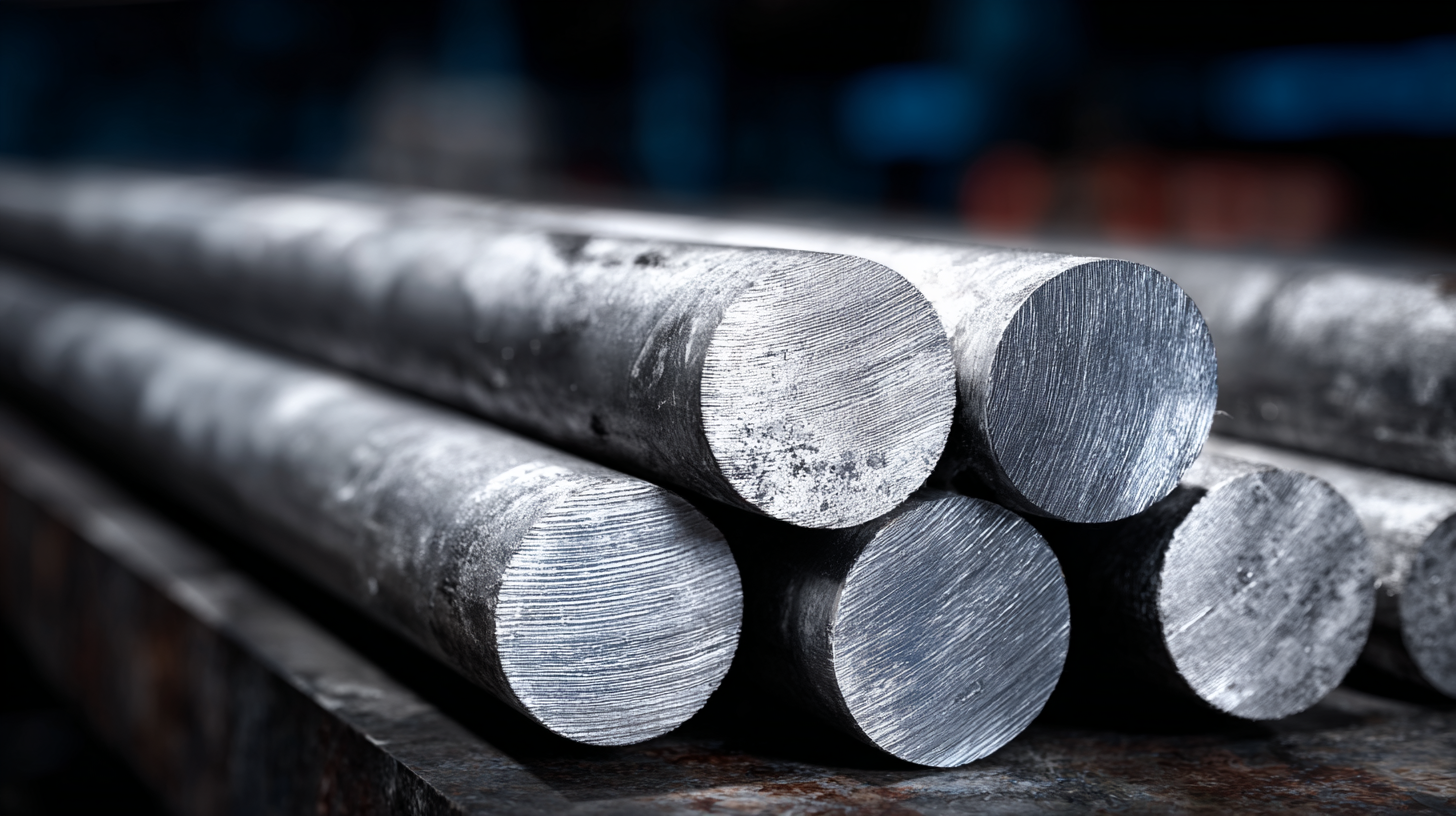
Quality Control Measures During the Sourcing Process for Aluminum Sticks
When you're sourcing top-quality aluminum sticks for markets all over the world, it's really important to have solid quality control measures in place. Otherwise, you risk ending up with products that don’t quite hit the mark. The process starts by setting clear specs — like what the aluminum should be made of, how strong it needs to be, and what kind of surface finish you're aiming for. These details really matter because they affect how well the sticks will perform and how long they'll last. A handy checklist can help manufacturers go through potential suppliers methodically and make sure they're offering what’s needed.
As production kicks off, it’s critical to keep a close eye on quality through regular inspections and tests. Techniques like spectrometry help verify the exact alloy, while tensile tests check for strength — catching any issues early before they become bigger problems. Keeping the lines of communication open with suppliers is just as important — it helps everyone stay transparent and deal with any hiccups quickly. Taking this kind of proactive approach not only makes the final product more reliable but also helps build long-lasting relationships with suppliers who truly care about quality. It’s all about working together for the best results, really.
The Ultimate Guide to Sourcing High Quality Aluminum Sticks for Global Markets - Quality Control Measures During the Sourcing Process for Aluminum Sticks
| Criteria | Description | Quality Control Measures | Inspection Frequency | Supplier Evaluation |
|---|---|---|---|---|
| Material Composition | Ensure aluminum alloy meets required standards (e.g., 6061, 7075) | Chemical analysis reports | Before shipment | Performance history, certifications |
| Dimensional Accuracy | Verify diameters and lengths are within tolerances | CMM (Coordinate Measuring Machine) inspection | On-site every batch | Prior projects and quality rankings |
| Surface Finish | Inspect for visual defects and anodizing quality | Visual inspection and surface hardness tests | Every 100 pieces | ISO certifications, references |
| Mechanical Properties | Tensile strength, yield strength, and ductility tests | Tensile test reports | Randomly per batch | Quality management systems |
| Packaging and Shipping | Protect aluminum sticks during transport | Inspection of packing methods and materials | Before shipment | Shipping records and incident reports |
Elevate Your Welding Skills: Explore AWS/ASME 5.3 E 4047 Aluminum Welding Electrodes for Superior Performance
When it comes to elevating your welding skills, exploring specialized materials is essential. The AWS/ASME 5.3 E 4047 aluminum welding electrodes are designed specifically for arc welding aluminum alloys that contain copper, silicon, and magnesium. These electrodes stand out for their exceptional performance in creating strong and durable welds, making them a favorite among professional welders. The unique composition of E 4047 allows it to provide excellent corrosion resistance while ensuring high weld integrity, key factors for applications in industries that demand reliability.
Using AWS/ASME 5.3 E 4047 electrodes not only enhances the quality of your welds but also expands the versatility of your welding projects. The electrodes deliver a smooth arc, which aids in minimizing spatter and providing a cleaner finish on the weld bead. This is particularly important when working on sensitive projects where visual aesthetics and structural integrity are paramount. Moreover, their ability to accommodate various aluminum alloy compositions makes them ideal for a wide range of applications, from automotive to marine industries.
By investing in E 4047 aluminum welding electrodes, you’ll find yourself better equipped to tackle complex welding tasks. With their user-friendly features and superior performance, these electrodes serve as a solid choice for welders looking to improve their skills and achieve professional results in aluminum welding. The right tools can make a tremendous difference in your welding journey, and with E 4047 in your toolkit, those improvements are just a weld away.
FAQS
: Quality in aluminum sticks ensures they meet industry standards, providing reliability and longevity essential for various applications, thereby optimizing performance and reducing defects, corrosion, and deformation.
Although initial costs may be higher, high-quality aluminum sticks offer durability and efficiency that can lower maintenance and replacement expenses, ultimately leading to greater profitability over time.
Companies should request certifications such as ISO 9001 to ensure the supplier's commitment to quality management and operational competence, along with conducting thorough vetting of the suppliers.
Approximately 60% of businesses experience supply chain disruptions due to inadequate supplier evaluation, highlighting the importance of a robust assessment process.
Manufacturers should comply with international standards such as ASTM B221, which specifies requirements for extruded aluminum shapes, ensuring quality and enhancing marketability.
The 6061 aluminum alloy is preferred for its excellent mechanical properties and corrosion resistance, making it suitable for many industrial applications.
Industry trade shows allow manufacturers to connect with potential suppliers, gather feedback, and engage in negotiations for better pricing and terms.
The demand for 6000 series alloys is projected to increase by 5% annually, particularly in the construction and automotive sectors.
When selecting suppliers, it’s crucial to verify that they provide materials meeting the desired alloy specifications and relevant quality certifications.
Focusing on quality during the sourcing process helps companies build trust with clients, leading to an expanded market reach and sustainable growth.
Conclusion
In today’s global markets, finding top-notch aluminum sticks isn’t just a nice-to-have—it's pretty much essential for industries that rely on solid welding solutions. This guide is all about highlighting how crucial it is to pick reputable suppliers who stick to the key specs and industry standards. That way, you know the aluminum sticks you get will meet the high-quality benchmarks you're after. Plus, understanding the various costs and pricing strategies can really help businesses make smarter, more informed choices when sourcing. And don’t forget about logistics—shipping and delivery play a huge role in keeping things running smoothly and on time, especially when dealing with international orders.
Of course, quality control isn’t something you can skip. Keeping a close eye on this throughout the whole process helps dodge the risks of ending up with poor-quality products. Here at Wenzhou Tianyu Electronic Co., Ltd., we’ve been doing pretty well in making welding electrodes and consumables. Adding high-quality aluminum sticks to our lineup is just another way we’re committed to offering reliable welding options for our customers. By paying attention to these key points, businesses can better handle the tricky world of sourcing aluminum sticks—and, in the process, boost their overall success.
Related Posts
-

Understanding the Importance of Best Nickel Welding Rods in Modern Metal Fabrication
-
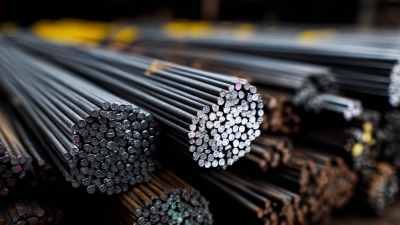
Solutions for Enhancing Welding Quality with 6010 Welding Rod
-

Unmatched Quality: China’s Premier Inconel 625 for Global Markets
-

Exploring the Advantages and Applications of the Top Welding Electrode Types
-

Understanding Export and Import Certifications for the Best Electrode For Welding
-

2025 Welding Innovations: The Top 5 Best Rods to Elevate Your Projects
Blog Tags:


